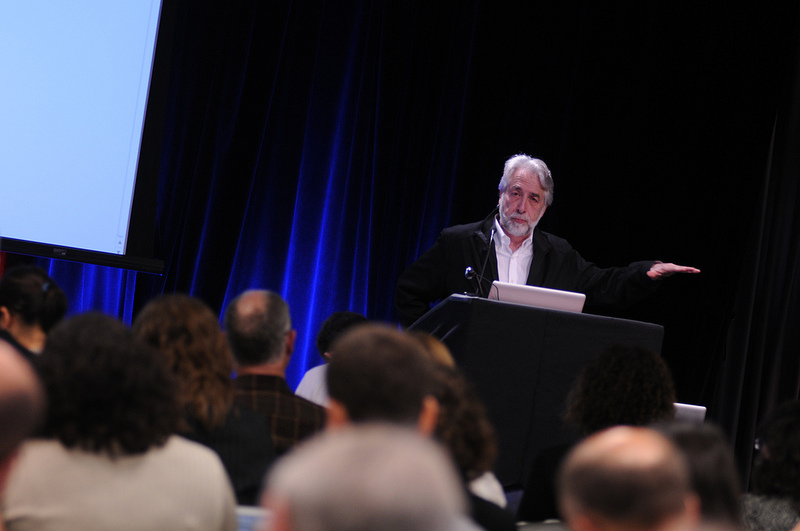
Calling on journalism educators to take bigger risks, experiment
Above: Richard Gingras, head of Google News, speaks at TechRanking 2012. Photo Credit: Flickr user California Watch.
At last week’s Chicago convention of journalism and “mass communication” educators, a letter from foundation representatives got a lot of attention. In my opinion, given the digital revolution, it was a rather tame observation. Funders said journalism education should 1. Speed up the pace of change and 2. Get better by using a more effective “teaching hospital” model. (A great example is this week’s News21 series on how voter fraud is not a real issue.)
My big takeaway from Chicago was the keynote by Richard Gingras, head of Google News. He went beyond the funders’ modest requests to speed up and get better. Gingras, who has talked about these things before, called upon educators to take bigger risks, experiment more and partner with computer science departments. We should call it the “lost keynote” because even though the educators invited him, his talk got relatively little tweeting and only one good story, in PBS Media Shift.
That’s too bad, because Gingras is absolutely right, and what he’s talking about is what we are looking for in the Knight News Challenge. We also think that getting more modern professionals into journalism education is a good thing because it will get bureaucracies moving.
Those resisting change should think about how much more Gingras is asking – nothing less than new approaches in an age of permanent, continuous, accelerating change – and how what the foundations talked about is only a small first step toward journalism education in the digital age.
By Eric Newton, senior adviser to the President at Knight Foundation
Update: Poynter has posted the full text of Richard Gingras’ talk, which does not seem to have been digitally recorded by the journalism educators.
Recent Content
-
Journalismarticle ·
-
Journalismarticle ·
-
Journalismarticle ·


